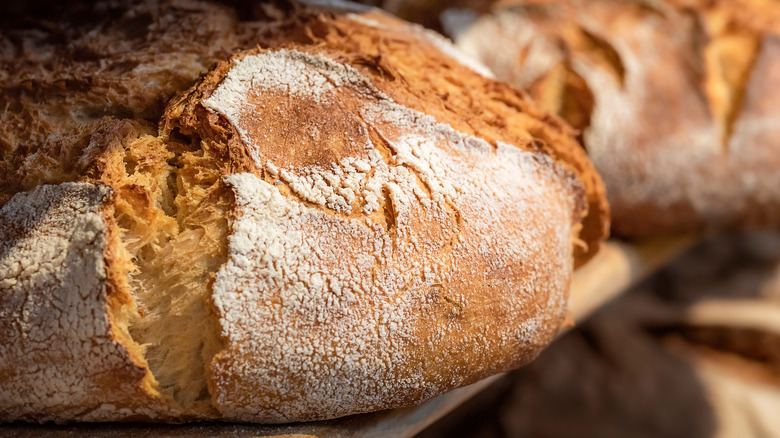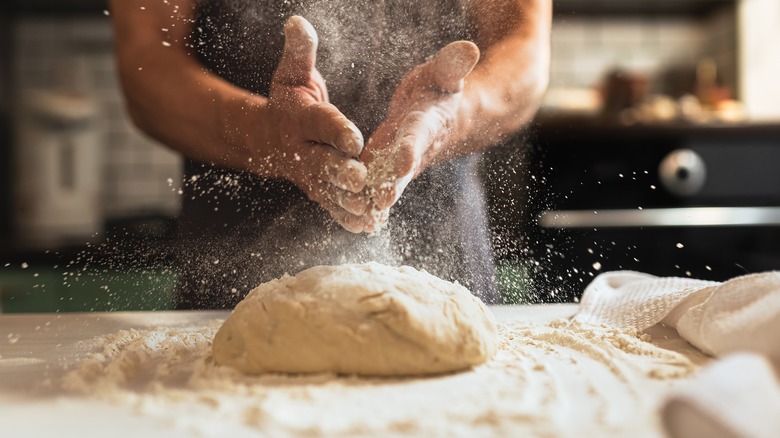How Microbakeries Raise Bread Expectations For Their Communities
If you live in New England, chances are you've seen your fair share of cars sporting pine green license plates and numerous bumper stickers reading: "No Farms," "No Food," or "Keep Vermont Weird." Of the six states that comprise the region, Vermont has a reputation for being independent. As The New York Times has stated, big-name box stores and chains do poorly in Vermont as state law allows municipalities to reject development proposals that don't meet town aesthetics or values. This persists because, in Vermont, local is not simply a buzzword. It's a way of life. This is especially true when it comes to food.
According to Farm to Plate VT, despite the state being rural and having a low population, local agriculture grew resoundingly between 2011 and 2020. Local food and drink purchases rose from just 5% of overall sales to over 13%, accounting for millions of dollars in added revenue and an increase in local jobs. It's no wonder, then, that microbakeries thrive in the Green Mountain State. Microbakeries aren't about trying to bake bread for the masses. Instead, they feed with a quality-over-quantity approach by providing excellent homemade bread, cookies, and pastries to their local communities, per Little Flour Microbakery. Where localism is so strong in Vermont, a handful of microbakeries across the state are working to fulfill the initiative of more community-centered food production.
Raising community standards
Vermont is by no means the only state in the country to have microbakeries; however, the ones operating in the state can provide a community footprint by which more can follow suit. According to Seven Days Vermont, the microbakeries in the state thrive through a combination of health and community consciousness, local grain producers, and the sourdough trend sprouted by the pandemic. They operate on a small scale, often meaning they cannot produce bread or offer it more than a few days per week. Tiny Bread Box in the southern Vermont town of Vernon is open only on Saturdays. The box serves locals with various sourdough breads, sugary Argentinian palmeritas and alfajores maicena, cinnamon rolls, and biscuits. Locals pay via a QR code or the honor system, which is still very much respected in rural Vermont (via Atlas Obscura).
There is more to a microbakery than simply selling bread. Bonté Bakery in Calias, Vermont, specializes in gluten-free sourdough breads. Owing to the owner's gluten-related struggles, Bonté focuses on producing rustic, extremely high-quality wheat-free sourdough bread for those with gluten intolerance or sensitivities, per Seven Days Vermont. Microbakeries are taking steps towards creating high expectations within communities to see bread and other baked goods as more than mass-produced commodities. Instead, the bakers aim for health and quality to feed their neighbors, and it's a wonderfully noble goal.

